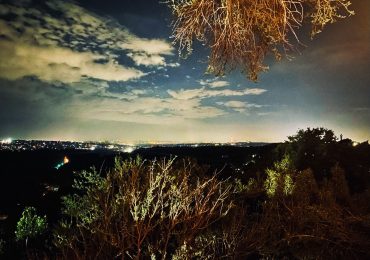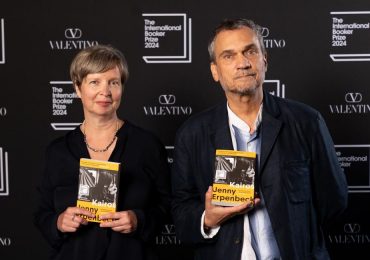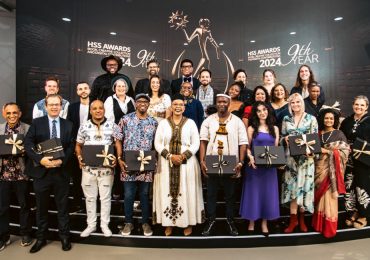The shortlist for the Short Story Day Africa Prize for Short Fiction has been announced.
The JRB is delighted that our regular contributor and Editorial Advisory Panel member Wamuwi Mbao has made the shortlist.
The prize, which was founded in 2013, is open to any African citizen or African person living in the diaspora. SSDA awards prize money of US$800 (about R11,000) for first place, $200 for second place, and $100 for third place.
The winner will be announced in early August, and the three top stories will be published exclusively in the August issue of The JRB.
Without further ado:
2018 Short Story Day Africa shortlist
‘Mr Thompson’ by Noel Cheruto
‘Happy City Hotel’ by Adam El Shalakany
‘Of Birds and Bees’ by Davina Kawuma
‘Why Don’t You Live in the North?’ by Wamuwi Mbao
‘Slow Road to the Winburg Hotel’ by Paul Morris
‘The Snore Monitor’ by Chido Muchemwa
‘Outside Riad Dahab’ by Chourouq Nasri
‘The Match’ by Troy Onyango
‘The Space(s) in Between Us’ by Lester Walbrugh
‘Shithole’ by Michael Yee
Congratulations to all the shortlisted writers!
The 2018 theme is ‘Hotel Africa’:
In 2018, Short Story Day Africa is seeking innovative short fiction set in the rooms, the passages, the bars and the lobbies of hotels across the continent, as well as metafiction exploring Africa as a hotel herself. If these walls could talk, what story would they tell?
The resulting anthology will be made up of all twenty-one stories that made the longlist. This year’s title is Hotel Africa: New Short Fiction from Africa, and the book is being edited by Ope Adedeji, Anne Moraa, Agazit Abate, with mentors Helen Moffett and Karen Jennings, as part of the SSDA Editing Mentorship.
Read SSDA’s shortlist announcement:
Every year, the SSDA team is confronted with an impossible task—choosing a shortlist from the twenty-one longlisted stories that appear in our annual anthology. We make this as fair as possible by using a panel of qualified judges—this year, we consulted fourteen (!), all of whom volunteered their time. The process is very democratic—votes are carefully tallied, and usually, the results are quite clear.
Well, not this year. It’s a credit to the quality of the stories chosen for the longlist that every single story in the Hotel Africa anthology was chosen as one of the top six by at least one judge. And we’ve never seen such a photo finish for the top end of the list. In past years, winners usually become clear at this stage, but this time, we couldn’t even establish a shortlist of six. We tried for a shortlist of eight—as we had to do last year. Not even that worked. After hours of hair-tearing, recounts and attempted tie-breakers, this year we have no choice but to present a rather long shortlist of ten—and several stories missed being on this list by only one vote.
Also every year, we congratulate not only those shortlisted but all the authors, assuring them that all their stories are excellent—and that’s why they’re in the anthology. However, this is our most evenly matched collection ever, and it’s worth reflecting on the reasons why.
One reason is that our volunteer slushpile readers are getting cannier at spotting potential, at choosing the truly original plot, or a startlingly fresh spin on an ancient theme. We actively look for raw talent, diamonds in the rough, to give them the same opportunities as more experienced authors, those who turn in smooth, fluent and error-free prose. It’s a common when selecting stories for anthologies like these to feel drawn to stories that are ‘easy’ to read because they’ve been professionally prepared and polished. We try to correct that unconscious bias. We try especially hard not to exclude stories written by authors for whom English is clearly not a mother-tongue or primary language. We embrace stories in which the multiple Englishes spoken on the continent can be heard. We don’t discard strong stories that have weak or abrupt endings—because endings can and often should be rewritten.
And this leads to the major reason we think the stories are so evenly matched this year: the in-depth editing process. The editing team—Ope Adedeji, Anne Moraa, Agazit Abate, with mentors Helen Moffett and Karen Jennings—gave copious amounts of feedback to enable authors to rewrite and rework where necessary. Notes from the selecting readers were consulted and incorporated into this feedback. This was followed by stringent editing, often characterised by much debate and comment. The goal of the editing programme and the mentoring process (which encompasses editors and authors) is to develop African writers so that their brilliance can shine on a world stage, alongside writers for whom professional editing is either built into their process, or easily accessed—not often true for writers from and in Africa. Those who read the ‘before’ and ‘after’ versions of these stories all commented on how dramatically editing had levelled the playing fields. This is an excellent outcome, but it does make choosing a shortlist a far more onerous job.
Finally, there is no doubt that while having a panel of judges is cumbersome, it makes the choosing of the shortlist a pretty democratic process. We’re hugely grateful to all those who make the time to do this job, and for the seriousness and commitment they bring to it.
Our hearty congratulations to the longlisted writers!
The previous winners of the Short Story Day Africa Prize are Tochukwu Emmanuel Okafor, Sibongile Fisher, Cat Hellisen, Diane Awerbuck and Okwiri Oduor.
Submissions are currently open for the 2019 edition of the Short Story Day Africa Prize, on the theme ‘Disruption’.






24 thoughts on “[The JRB Daily] 2018 Short Story Day Africa shortlist announced—‘we’ve never seen such a photo finish’”